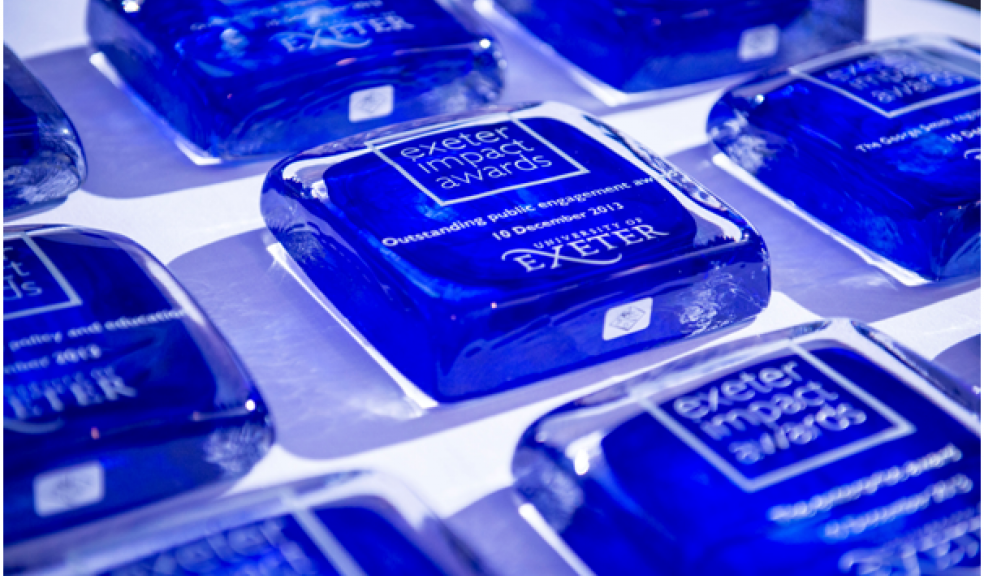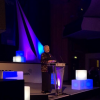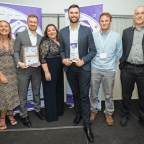
Exeter Impact Awards celebrate world class research
The University of Exeter recognised a diverse range of its world class research and its local business partners at the Exeter Impact Awards last night.
Research projects taking place across the university were highlighted for their benefit and contribution to society at the awards ceremony sponsored by the Wates group.
Research projects run with help from some of the South West’s highest profile organisations were also highlighted through the George Smith regional partnership award for their impact the local area.
The ceremony featured, philanthropist and prominent businesswoman, Dame Stephanie ‘Steve’ Shirley as its Key-note speaker who passed on her experience to an audience of academics, Exeter alumni and local business leaders.
A refugee who fled Nazi Germany on the Kinder transport, Dame Shirley has committed over £67 million of her own money on good causes including a number of research projects.
Dame Shirley spoke of her commitment to funding medical research, in particular about her desire to further research into Autism, she said: “My latest project is to find out what autism is rather than what it looks like”
Sir Steve Smith commented on the event: "I was delighted not only by the quality of the research on display but also by the real difference it was making to improving understanding of some of the biggest challenges we face, be they regional, national or global. The evening was a great success and my personal congratulations go to all the winners who thoroughly deserve their trophy."
The University was also pleased to welcome Wates Group, one of the UK’s largest building and construction companies, as the main partner for this year’s event.
Gary Campbell-Dykes from Wates concluded: “We were extremely pleased to be able to work with the University on this initiative and would like to add our tribute to the winners and all the finalists for their outstanding research projects. It was a fantastic night for all involved.”
Researchers were shortlisted into eight categories and judged upon their extent and of their contribution to wider society to decide on which research team had an outstanding impact ont he wider society.
A ninth special award recognised the impact of a post-graduate’s research conducted whilst studying at the university. The winner of the prize received £1,000 to support their future work.
The research areas recognised for their outstanding impact was; arts and culture, policy and education, health and wellbeing, sustainable futures, technology, public engagement.
Impact in business was also represented in the Enterprise award sponsored by charted accountants Francis-Clark.
The Exeter Impact Awards provided a high-profile opportunity for researchers to showcase their work to other academics, industry partners and the wider public.
The highlight of the cermony was the George Smith regional partnership award named after George Smith the first winner of the award.
The five shortlisted projects demonstrate how the University engages with regional organisations to create change.
External peer reviewer Pippa Warrin, Senior Manager of Regional Planning for the Arts Council, said that she was "impressed by the imagination and creativity of many of the entries."
She added: “‘I thought there was an outstanding range of partners across the board , these ranged from sports clubs to community centres, health and education partners and an impressive range of businesses and commercial enterprises - large and small."
The winners of each category are as follows:-
Arts and culture: Art Maps: the development of a new crowdsourcing tool
Enterprise: Simpleware – image based modelling tools for industry
Health and wellbeing:- Judging the value of healthcare treatments: getting the outcomes right for patients
Policy and education:- Rewriting education for teachers: improving professional understanding and practice
Public engagement:- Past Caring: a study of bereaved carers, by carers, for carers, with carers
Regional partnership:- Optimising emergency stroke treatment to reduce disability
Sustainable futures:
There were combined winners in this category, with Hasan Baig and his supervisor Professor Tapas Mallick both taking home the honours. for their work on Combining solar energy and biomass: unlocking a new energy source for rural communities
Technology: Fourth generation biofuels: programming bacteria to produce retail-grade diesel
Best postgraduate impact: A new event recognition system for water distribution networks















